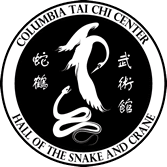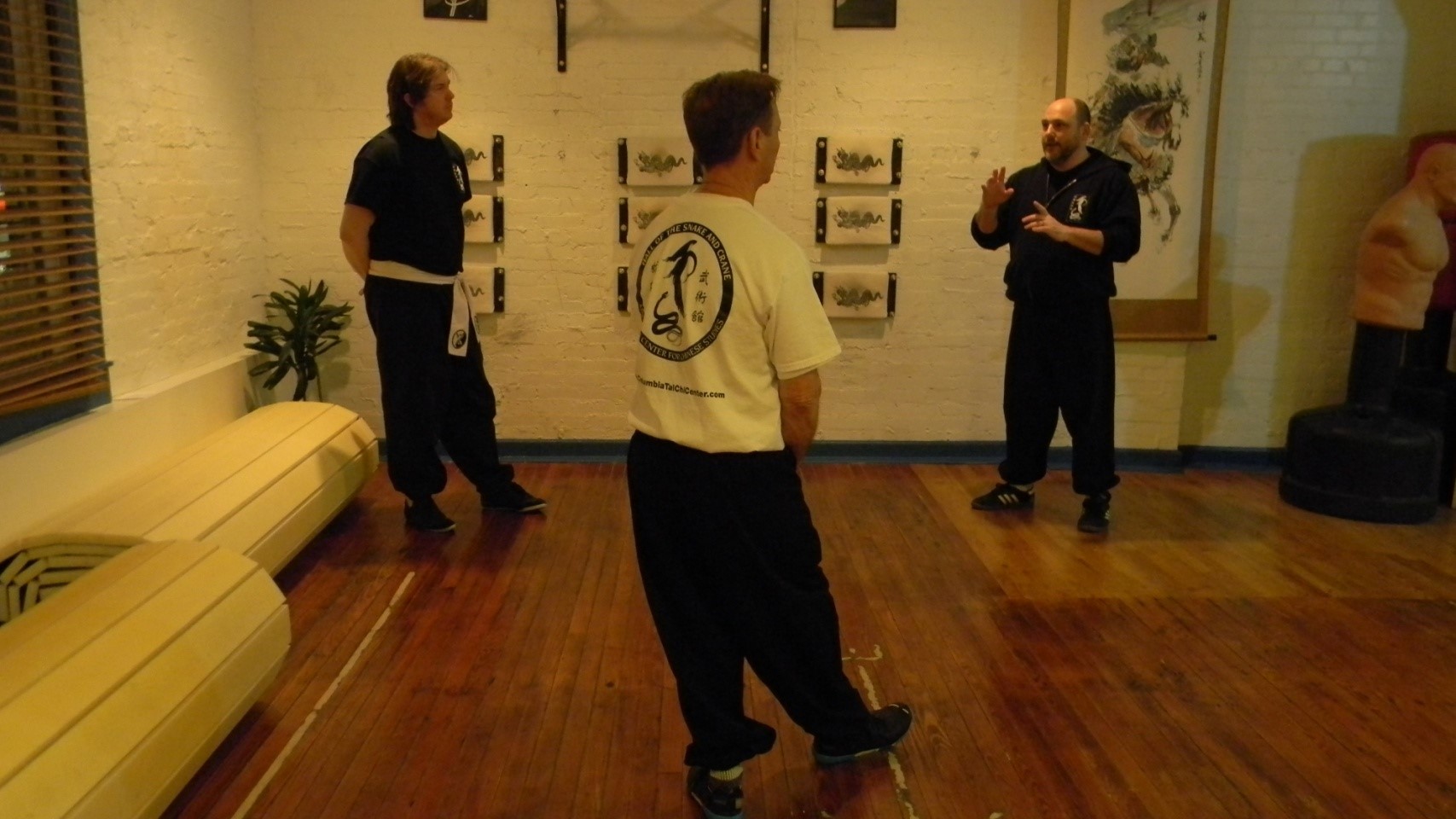Why There Are No Beginner Classes at Our School
By Barbara (Bobbie) Purvis
When people ask about Tai Chi classes at Columbia Tai Chi Center among the first questions I am usually asked is one about the days and times of “beginner” classes. After witnessing a few stunned faces when I told them that there are no beginner classes at our school, I decided to take a whole new approach. Now I tell them that ALL of our Open Class are “beginner” classes (but to be totally honest, those very same classes are also intermediate and advanced classes, too)!
You see most traditional martial arts schools don’t separate beginning students into special classes – all levels train together. We might not be doing the same exercises or training drills, or working on the same form with the same emphasis or intent, but we are all together and interact whenever it is appropriate. Even so, aside from actual martial training, there is still much that the beginning student can learn by being in classes with intermediate and advanced students.
Looking back at my first encounter as a beginning student with my teacher’s teacher, Master Eric Sbarge of The Peaceful Dragon in Charlotte, NC, I am mortified. I didn’t quite know or understand very much about traditional martial arts etiquette. But being the “serious but easygoing” person that he is, Master Sbarge didn’t even blink. While I’m sure he didn’t take offense at my ignorance, he was probably thinking that I had a LOT yet to learn – a type of learning that had nothing to do with the actual practice of Tai Chi.
Through observation, beginning students learn that they should not ask for a new move, but they should wait and trust that the instructor will know the right time to introduce the next key step in their training. In this setting they will also formulate an appreciation of the time and practice more advanced students have put into the art and hopefully, will be inspired to do the same. New students gradually begin to learn new terminology and aspects of training they would not have been exposed to if trained separately. They also get a glimpse of what they will be learning in the future.
By watching advanced students, I have since learned the saving grace of the bow (and wish I’d known this the first time I met Master Sbarge). Don’t know what to say? Simply smile and bow. Are you approaching someone to speak to them? Or are you about to take leave of someone’s presence? Again, a smile and a bow would be appropriate in those instances, too. Did you just commit a breach of etiquette? A bow and apology will do wonders. Did you receive a correction in class? A bow and “thank you” to the instructor for taking the time to help you improve is priceless. All of these things are passed along from student to student, from advanced to intermediate, to beginner without words or explanations when students of all levels train together.


